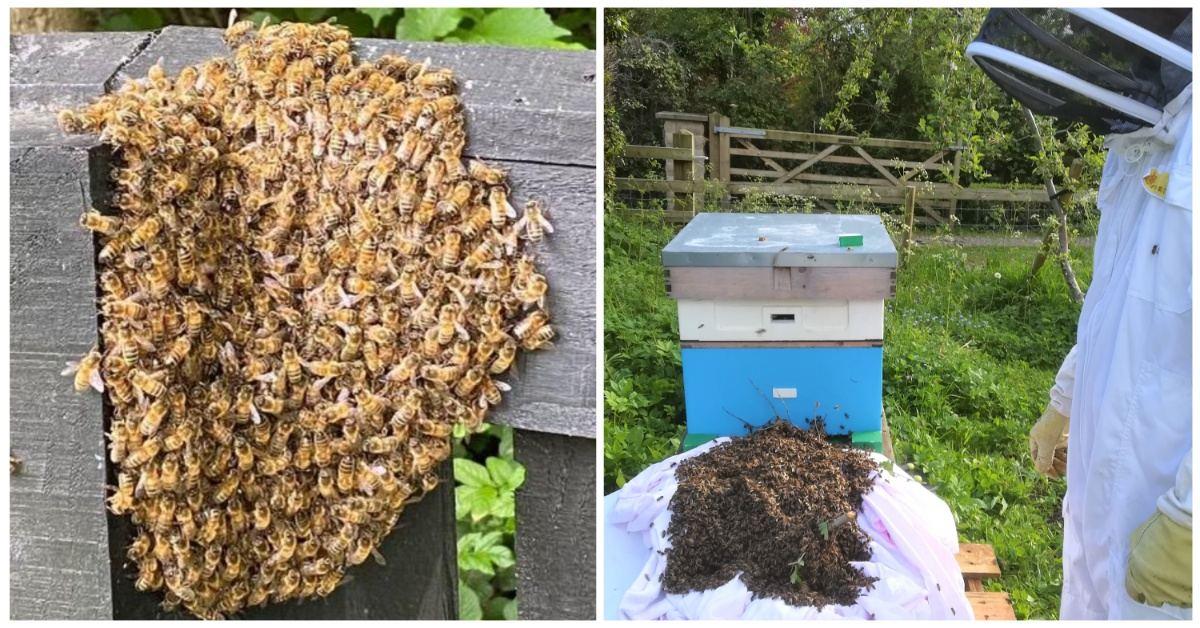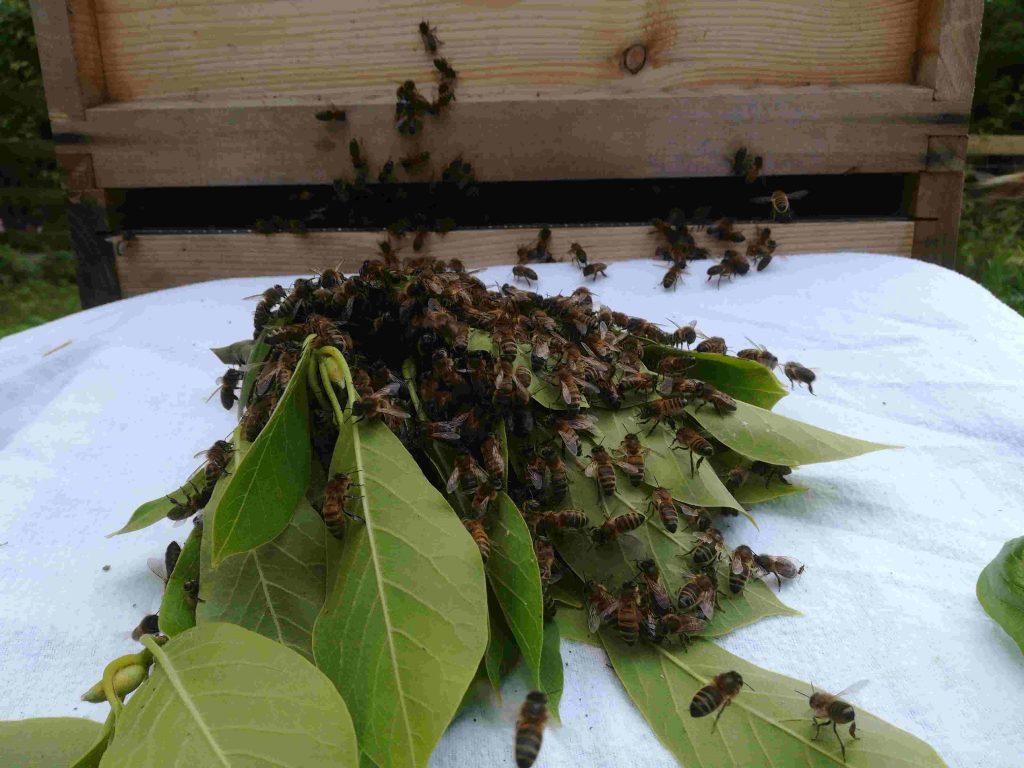Subscribe to trusted local news
If you are accessing this story via Facebook but you are a subscriber then you will be unable to access the story. Facebook wants you to stay and read in the app and your login details are not shared with Facebook. If you experience problems with accessing the news but have subscribed, please contact subscriptions@thestrayferret.co.uk. In a time of both misinformation and too much information, quality journalism is more crucial than ever. By subscribing, you can help us get the story right.
- Subscription costs less than £1 a week with an annual plan.
Already a subscriber? Log in here.
29
May 2023
Harrogate and Ripon beekeepers urge public to report swarming bees

The Harrogate and Ripon Beekeepers Association has called on the public to get in touch if they come across a swarm of honey bees so they can be safely collected.
Now is the time of year when honey bees can swarm in search of a new home. During a swarm, thousands of bees can be found clustering on gates or in trees and hedges.
Diane Pritchard from the association told the Stray Ferret why the bees swarm. He said:
The Harrogate and Ripon association has 400 members and covers all Harrogate postcodes, as well as Skipton, Northallerton and Leeds. Each year, its members collect around a hundred swarms.
The association’s Swarm Team has two people at the end of phone line and, when a swarm is reported, the nearest beekeeper will don a bee suit and take specialist equipment to pick it up. The service is free.
If the swam is in a tree the beekeepers knock the branch or cut it down and let the swarm fall into a box. The box is then opened near an empty hive which the bees generally colonise.

A branch full of swarming bees is placed next to an empty hive
Honey bees have had a rough time in recent years with disease and pesticides impacting bee numbers.
More recently the bees have been threatened by a new foreign predator that has made its way to the UK – the Asian hornet, which eats pollinators such as bees.
Diane said:
The association’s Swarm Search co-ordinator can be contacted on 07471 784210.
Read more:
- Claim North Yorkshire Council ‘not in people’s faces’ about climate change
- North Yorkshire County Council finally declares climate emergency
- Harrogate councillor appointed county’s climate champion
0